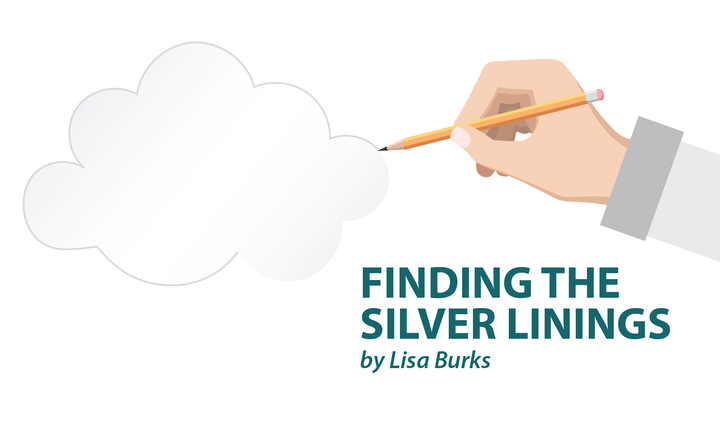Crohn’s disease can be incredibly debilitating. Living with the weakness, fatigue, urgent bowel movements, intestinal pain, and secondary conditions associated with the condition is extremely challenging. What makes it even harder is that Crohn’s is an invisible disease and its symptoms are not apparent to others.
Many people with invisible diseases deal with discrimination and disbelief. Last year, before I started using a wheelchair, I experienced prejudice when I parked in a handicap-accessible parking space. I encountered skeptical looks and people voicing their opinions as to whether I needed the parking spot.
One woman even called the police because she thought I was faking my illness and accused me of stealing a parking placard. When a police officer arrived, he told her that she had no valid reason to call, and admonished her for harassing a person with a disability.
She apologized, but her words had hurt my feelings. She had assumed that because I didn’t look disabled, I must be faking.
We need to raise awareness about the existence of invisible illnesses. I’m in a wheelchair now, so I don’t get judged for parking in handicap-accessible spots, but that doesn’t mean that I am more deserving of them than others with disabilities.
I had to stop working and attending college when I became too ill to continue. I have several diseases that affect me physically but not visibly. I have severe asthma, immune deficiency disease, Crohn’s, arthritis, and avascular necrosis that cause daily pain, extreme fatigue, and severe gastrointestinal symptoms.
Sometimes I can barely leave my house, which affects my social life as well. It’s hard to make commitments to attend events with friends when I’m aware that my health can suddenly decline. Thankfully, my friends are understanding, but I still feel disappointed when I’m forced to cancel outings.
These are some of the typical comments those with invisible diseases hear:
‘You don’t look sick’
Really? I didn’t think you had to exhibit significant symptoms to be sick. We adjust our lives to complete daily tasks and find ways to live as normally as possible. Acquaintances have told me that I’m exaggerating my conditions, but they have no right to judge the severity of my diseases.
‘You’re using your conditions to get out of work or school’
Who are they to determine whether or not we are strong enough to go out? Most of us want to go to work or school. Being forced to stay home when feeling sick and miserable is not a vacation.
‘Why don’t you go to the doctor and take a medication?’
Unfortunately, a miracle pill doesn’t exist. We take medications to control our symptoms and slow disease progression.
‘Try this (insert name) diet. It will cure you.’
If they don’t have our condition, they can’t know what will help our disease. While some diets might help to ease symptoms, we have no guarantee that restricting foods will have any benefits. Diets are not a cure, and no cure for Crohn’s exists.
These are some examples of the frustrating and judgmental comments that we encounter. Recently, while standing at the hair salon’s counter waiting to pay, another customer told me to get out of the way. I was using a mobility aid so the person could see that I couldn’t easily move. And besides, the person had plenty of counter space next to me. I took the high road and rolled away.
We are warriors
We shouldn’t let the ignorance of these people bother us. We live with diseases that try to take us down, but we fight to overcome our hurdles and come out on top. Living with disease makes us tough, both mentally and physically. If you are struggling emotionally, it’s OK to seek help. Talk to a friend, family member, or counselor.
***
Note: IBD News Today is strictly a news and information website about the disease. It does not provide medical advice, diagnosis, or treatment. This content is not intended to be a substitute for professional medical advice, diagnosis, or treatment. Always seek the advice of your physician or other qualified health providers with any questions you may have regarding a medical condition. Never disregard professional medical advice or delay in seeking it because of something you have read on this website. The opinions expressed in this column are not those of IBD News Today, or its parent company, BioNews Services, and are intended to spark discussion about issues pertaining to IBD.

